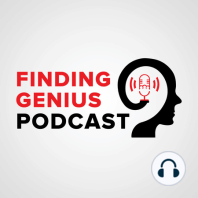36 min listen

Transplants without Immunosuppressant Drugs: UCSF's Transplant and Stem Cell Immunobiology Lab
Transplants without Immunosuppressant Drugs: UCSF's Transplant and Stem Cell Immunobiology Lab
ratings:
Length:
37 minutes
Released:
Apr 23, 2020
Format:
Podcast episode
Description
Sonja Schrepfer Bio: Sonja Schrepfer, M.D., Ph.D., Professor of Surgery, founded the Transplant and Stem Cell Immunobiology (TSI) Lab in 2009 in Germany. In 2015, she joined the faculty of the Department of Surgery at the University of California San Francisco and was Director of the TSI Lab at UCSF. Sonja is scientific co-founder of Sana Biotechnology Inc. which she joined as SVP in 2019. Dr. Schrepfer's research career has been dedicated to making fundamental discovers in transplant and stem cell immunobiology. Pluripotent stem cell (PSC)-based approaches are effective in immunosuppressed/deficient animal models; but in humans, systemic immunosuppression cannot be justified, due to severe side effects and significant risk of infections and malignancies. So far, only a few immunological strategies have been proposed to overcome these hurdles. Work by Dr. Schrepfer is at the forefront of PSC immunobiology and paves the way for treatment of a wide range of diseases – from supporting functional recovery of failing myocardium to the derivation of other cell types to treat diabetes, blindness, cancer, lung, neurodegenerative, and related diseases. She spent many years examining in detail the fetomaternal interface for application to the envisioned cell therapy. Her work with one of the most antigenic phenotypes, antigen-presenting endothelial cells, demonstrates that hypo-immunogenic cells reliably evade immune rejection in allogeneic recipients that are entirely mismatched in their major histocompatibility complex profile, and further, these cells show long-term survival without immunosuppression in mice and humanized mice (published in Nature Biotechnology in 2019). Sonja is currently Adjunct Professor at UCSF investigating the immunobiology in “tissue chips in space”; that is sending tissue chips to the international space station (ISS). She participated in three flight missions as collaborator and was the PI on the SpaceX16 mission (December 2019). This research will provide insight into what physiological effects time in outer space might have on astronauts, with potentially important implications for future longer-term missions, and has the possibility to open the door to fascinating new discoveries that could be used in earth-bound immunology research. Tobias Deuse Bio: Tobias Deuse, M.D. is a cardiac and heart and lung transplant surgeon internationally renowned for his pioneering work in the development of minimally-invasive techniques for mitral valve repair. Dr. Deuse graduated the University of Stuttgart (Germany) in 1994 with a BS in Physics, and in 2000 earned an M.D. from University of Wuerzburg. Dr. Deuse thereafter received advanced training in cardiothoracic surgery at the University Hospital Munich-Grosshadern and University Heart Center Hamburg-Eppendorf. After obtaining his board certification in Germany in 2007 as a heart surgeon, Dr. Deuse completed a surgical fellowship in Lung and Heart-Lung Transplantation at Stanford and joined the UCSF faculty in 2015. Dr. Deuse’s laboratory at UCSF is working on the immunobiology of pluripotent stem cells. To circumvent rejection, techniques such as somatic cell nucleus transfer (SCNT) into an enucleated oocyte (formation of a SCNT stem cell), fusion of a somatic cell with an embryonic stem cell (ESC; formation of a hybrid cell), and reprograming of somatic cells using certain transcription factors (induced PSCs, iPSCs) have been used. However, his work has shown that SCNT stem cells and iPSCs may have immune incompatibilities with the nucleus or cell donor, respectively, despite having identical nuclear DNA (published in Cell Stem Cell 2014). Further, he has demonstrated that mitochondrial (mt) DNA-encoded proteins as well as mtDNA mutations and genetic instability associated with reprograming and iPSC expansion can create minor antigens, producing rejection. His work also demonstrated that even autologous iPSC derivatives are not inherently immunologically inert
Released:
Apr 23, 2020
Format:
Podcast episode
Titles in the series (100)
Airbitz.co – A Convenient, Easy and Secure Bitcoin Wallet: Airbitz started out as a mobile wallet for bitcoin and has evolved into a single-sign on security platform for blockchain apps. Paul Puey explains how Airbitz is an easy to use… by Finding Genius Podcast